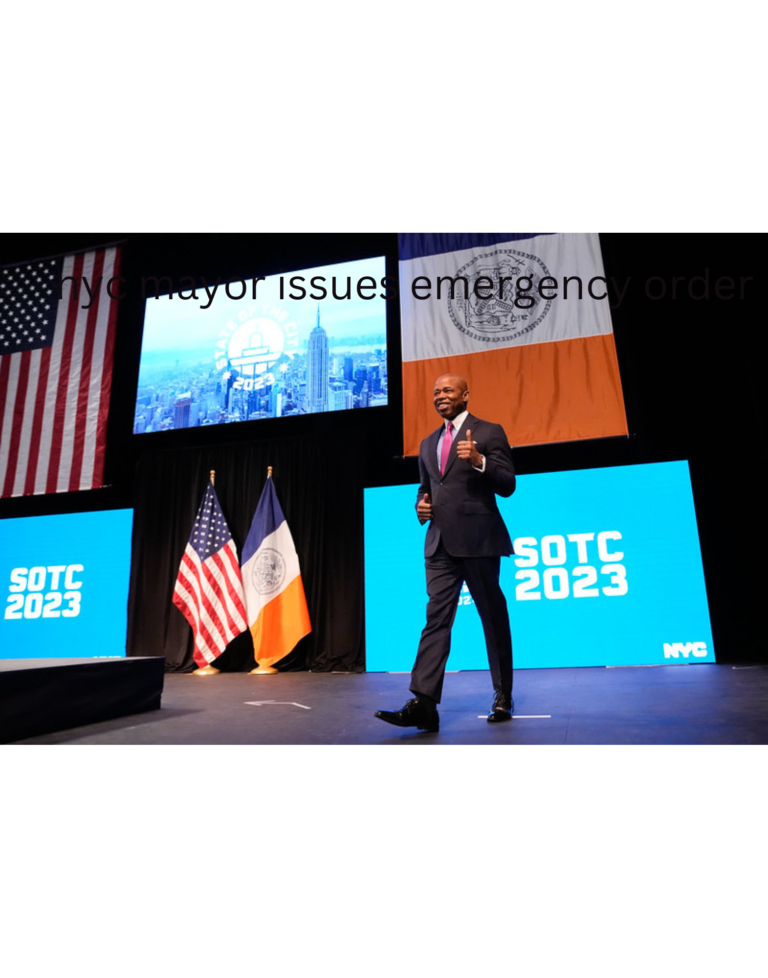In recent weeks, New York City has been in the spotlight, with its mayor issuing a series of emergency orders aimed at addressing various pressing issues facing the city. An emergency order is a powerful tool that allows the mayor to implement rapid responses to crises, be it public safety threats, health emergencies, or natural disasters. These orders, while effective in their urgency, often raise questions about the mayor’s powers, accountability, and the implications for residents.
How do I complain about the Mayor of NYC?
Residents of New York City who have concerns or complaints about the mayor’s actions have several avenues to voice their opinions. The primary method is to reach out through official channels. NYC has established a 311 service, which offers a platform for residents to report non-emergency issues, complaints, or suggestions related to city services, including those managed by the mayor’s office. In addition to 311, individuals can contact their local city council member to express concerns, or directly communicate through the mayor’s official website, where they can submit feedback or request responses. Social media platforms also provide a modern outlet for residents to voice their opinions publicly.
What happens if the NYC Mayor dies?
The unexpected demise of a sitting mayor triggers a chain of events outlined by the city’s charter. In the unfortunate event that the mayor dies, the city’s Public Advocate, who is next in line for succession, steps in to fulfill the mayoral duties temporarily. This appointment remains until a special election is organized, allowing constituents to elect a new mayor. Furthermore, the city council has the authority to legislate the specific timeline and details surrounding the special election to ensure a smooth transition of power.
Does the NYC Mayor get protection?
Yes, the mayor of New York City does receive protection, primarily through the New York Police Department (NYPD). The Mayor’s Security Detail, a specialized unit within the NYPD, provides personal security and ensures the safety of the mayor during public appearances and while performing official duties. The level of protection varies, based on the perceived threats and circumstances surrounding the mayor. In addition to physical protection, the mayor can avail themselves of other resources and strategies designed to ensure their safety in a complex urban environment.
What are the limits for the Mayor of New York City?
Despite the significant powers afforded to the mayor, there are crucial limits and checks in place to curb potential abuse of authority. The New York City Charter outlines the scope of the mayor’s powers, which include managing city departments, proposing budgets, and setting city policies. However, the mayor cannot unilaterally enact laws; instead, most legislative powers are vested in the City Council, which must approve many of the mayor’s initiatives. Additionally, the mayor is accountable to the public and subject to oversight from various watchdog agencies. These mechanisms ensure that while the mayor can act decisively, they must also remain responsive and responsible to the citizens they serve.
Conclusion
As the city grapples with complex challenges, the issuance of emergency orders by the NYC mayor plays a crucial role in navigating these issues effectively. Understanding how to engage with the office of the mayor, the protocol in emergencies, and the frameworks of power and protection can empower residents while maintaining checks on authority. New York City remains dynamic and vibrant, shaped by its residents and their active participation in civic matters, especially during times of crisis.
